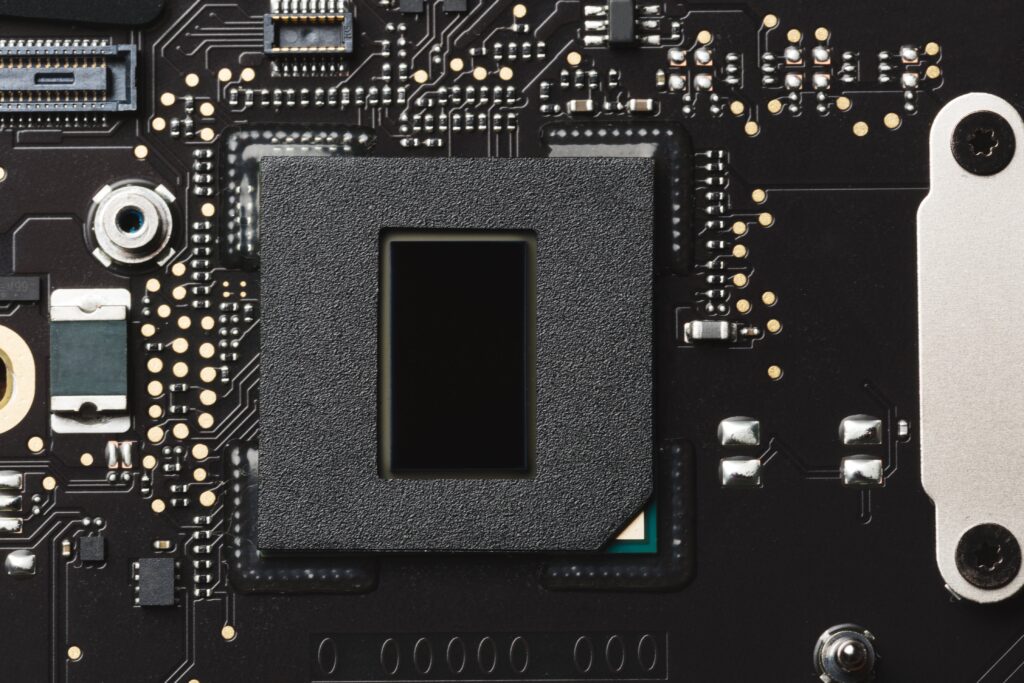What is Electronics Engineering? skills, specializations, and jobs in 2024

On the other hand, electronics engineering deals with dynamism associated with the rapidly advancing digital age of our world. This has been a form of engineering, but modern technology forms its basis upon which we depend every day.
From the smartphones in our pockets to the whirring electric cars that zip us into the future, everything is the work of an electronics engineer. They merge ideas in Physics and Mathematics with creativity to drive ideas into tangibility.
In the following paper, we will guide you through the world of electronics and electrical engineering. We underline the importance of this discipline, elaborating on the competencies core to it, the steps one can take to learn, and major responsibilities performed by engineers towards high flying into the future.
From students seeking to join the field to professionals simply interested in knowledge, you will get everything that will help in deciding whether you really want to venture into this field of electronics engineering.
What is Electronics Engineering?
It is one of the most important sub-disciplines of electrical engineering to understand the concept and design of the systems, electronic devices, and the circuitry applied in almost all the fields around us.
The works of an electronics engineer are in developing and ameliorating the technology in a more resourceful and apparent approach: mobile phones, television sets, medical devices, even communication systems.
Electronics engineering was based on the realization of the tremendous potentials inherent in the use of electricity. It began with the creation of the telegraph, but its evolution was furthered in the 20th century with inventions like radio and the telephone.
This process experienced no stoppage but rather advanced with sonar, radar, and communication systems, thus firmly establishing the importance of this area as one of the founding stones of technological progress.
Huge industrialization, exponential growth in wireless communication, and digital technologies have increased manifold the demand for electronics engineering disciplines in the job market today.
If you are one of those who want to enter into this field, then it is very important for you to know that the important roles of electronics engineers in so many vital industries are really at the front row of the continuing cycle of technological innovation.
Major Areas of Work and Specializations in Electronics Engineering
Of all branches of engineering, Electronics and Electrical Engineering are the broadest and most all-encompassing, opening wide doors for engineers in crucial areas with a direct impact on our lives.
A typical job of an electronics engineer does not find scope only in the circuit design of devices but also includes the development of integrated systems on which a range of industries and the economy operate.
An overview containing some of the key fields and specializations in the field of Electronics Engineering is embedded below:
Wired and Wireless Communications
No other specialization in Electronics Engineering is more promising than communications. It involves the establishment of wired and wireless communication systems, that is, mobile phone networks, satellites, and the internet.
Communications engineers also work on developing and improving the efficiency and safety of data transfer across these networks, giving special focus to modern technologies like 5G and IoT.
Medical Electronics
These engineers play a very essential role in healthcare by developing devices that help diagnose and treat diseases.
It is, therefore, through the works of an engineer that better accuracy and efficiency tools are achieved in developing MRI machines, monitoring the heart rate, and wearable devices monitoring patients’ health conditions to get the best medical outcome.
Renewable Energy and Control Systems
It therefore follows that the interest on renewable energy alone presents an important role for the electronics engineer in the development of control and management systems for both solar and wind energy.
An entire field of practice surrounds efficient energy conversion and distribution, and combining as many energy sources as possible in a system to maximum advantage.
Industrial Electronics and Automation
Industrial process automation is another major specialization of electronics engineering.
It refers to that part of control and supervisory system design and development applied in handling machinery and equipment in factories in ensuring increased productivity, improved quality, and greater efficiency.
They also work in the car industry and develop electronic systems to control many functions in modern vehicles—for example, anti-lock braking systems or assistance systems in self-driving cars.
Consumer Electronics
This is the region where consumer electronics engineers work to develop and design consumer-based electronic products, from the simple gadgets like smartphones and smart home devices to the complex electronic devices such as televisions and computers.
The second aspect of this specialization is the incessant acts of innovation that are carried out to be at the place of market demand, high performance, low energy consumption, and efficient user experience.
Research and Development
Research and development are at the very basis of innovation in the field of electronics engineering. Engineers working from universities, large enterprises, or research centers develop new technologies related to artificial intelligence, quantum computing, and new electronic materials.
Such research gives quite important results, opening wide horizons regarding the application of electronics engineering in practice.
Essential Skills for an Electronics Engineer
To be an electronics engineer, you will have to equip yourself with broad skill sets and knowledge bases that will help you sail through stringent technical challenges and rapid developments. Major skills that you should gain are explained below:
Strong Background in Mathematics
Mathematics is the backbone of all engineering courses, and here in this case, it applies to the electronics and electrical course.
You must have a very tight grasp of algebra, calculus, and differential equations.
It helps in the design and analysis of any electronic circuit. This makes you realize the relation of various variables involved within the systems to ensure correct optimization of performance and processes.
Deep Understanding of Physics: Electronics engineering equips you with knowledge of physics, very instrumental in helping one get a clear understanding of the laws that govern the operation of electronic devices and how environmental factors can affect them.
The understanding allows one to choose appropriate electronic components, to develop more efficient and safe systems, and foresee improvements in performance under different operating conditions.

Programming Skills
In today’s electronics engineering, design and development are inseparable with intrinsic programming.
Programming languages, such as C++, Python, and Java, should be mastered because these are the ones that will help designers in designing embedded systems and programming microcontrollers, running digital simulations that would test systems before having them actually built. Such skills reduce errors and increase the effectiveness of the development process.
Circuit Design
The working of designing electronic circuits is at the center of any electronics engineer; thus, a person requires a great understanding of electronic components, starting from resistors to capacitors, transistors, and diodes.
You should have a very good familiarity with how electronic design software like SPICE and Altium can be used to turn an idea into a practical design and test it before production.
Problem-Solving Skills
One core competency for any electronics engineer is the ability to analyze technical problems and develop innovative solutions to the same.
In your entire career, you will be confronted with various complex technical problems that will require creativity and ability for quick effective identification of the root cause of a problem at hand. This skill needs a mix of theoretical knowledge with practical experience.
Critical Thinking and Creativity
Electronics Engineering combines critical thinking—objectively evaluating data—with creative thinking—coming up with new ideas from the evaluated data.
Be it solving an existing problem or developing a new system, critical thinking helps in making informed decisions while creative thinking allows coming up with fresh, unique, and unconventional solutions.
Continuous Learning
In view of the rapid changes taking place in the field of electronics engineering, it is imperative to have a strong urge for continuous learning and staying updated about new technologies and innovations.
It enables one to stay abreast of new trends and state-of-the-art technologies, giving an edge in delivering avant-garde solutions that would meet market needs.
How to Learn and Practice Electronics Engineering
Complete Basic Education
Learning electronics engineering is not easy, and therefore preparation should be made as early as high school. In most countries, students who want to study engineering are advised to take the scientific or mathematical track in secondary school, which would make it easier for them to enter engineering college.
This includes mathematics and physics—the two important subjects that form the foundation of concepts in the electronics field.
Tips for High School Students to Be Prepared for Studies in Electronics Engineering:
Master the Core Subjects: Develop your math and physics skills, for they are the underpinning fundamental forces that help you understand electronics.
Take Introductory Online Courses: Avail Coursera or edX to take introductory courses on electronics and programming.
Work on Simple Electronic Projects: Begin working on simple projects using Arduino or any such software to get practical experience in the designing principles of simple circuits and products.
Read Scientific Content: This can be done through books on electronics or easily understandable articles in order to find out where exactly one’s interests lie.
This will then provide a good foundation for you at university and hence good results.
Note: If you are a high school graduate from quite a while ago, or if your qualification does not make you eligible for the university stream, then you could consider some institutions offering vocational education programs or technical diplomas. These could be gateway programs to a university later or assist in employment in the field of electronics.
Get a University Degree
This makes earning a university degree in electronics engineering mandatory if you want to work for any company dealing with electronics.
Undergraduate studies usually take four to five years and give students comprehensive education in all areas related to the design of electronic circuits, digital systems, and control of automation.
Most of the universities offer opportunities for involvement in practical projects and research activities; therefore, this enables you to apply what you have learned to gain field experience.
Best Arab Universities to Study Electronics Engineering:
King Fahd University of Petroleum and Minerals, Saudi Arabia: Known for its learning in the field of engineering, it has strong programs in Electronics Engineering.
American University of Beirut, Lebanon: The School of Engineering and Architecture has a highly rated electrical and electronics engineering program based on advanced research.
Cairo University, Egypt: It has one of the oldest, more respected engineering faculties in the Arab world and offers a very strong program in electronics engineering as well.
Top Global Universities to Study Electronics Engineering:
Massachusetts Institute of Technology, MIT – USA: Innovation and advanced research put MIT at the top of all universities worldwide in the field of engineering and especially electronic engineering.
Stanford University – USA: The university has a fabulous course on electronics engineering, and also it allows great scope of collaboration with the best technological companies in Silicon Valley.
It offers practical application through extensive research-oriented
undergraduate programs in Electrical and Electronics Engineering, offered by one of the most renowned European universities in the field of Engineering—the University of Cambridge, UK.
Hands-on Training and Self-study
The learning journey does not stop here at the bachelor’s degree level; it only takes on a new form!
Practical training is indispensable to develop skills and get practical work experience. Avail the opportunity of cooperative training during the university study period, or work as an intern in a company in your field.
Another milestone in developing skills is self-learning. Make use of all online facilities: open courses, scientific articles, and open source projects, among others.
Professional Certification
Professional certification will be a fine addition to your academic qualification. It will drive home your competence and excellence in specific areas.
Some of the internationally known certifications that will add value to your employability include:
Cisco Certified Network Associate: This is a certification that deals with networks and could be imperative should you be interested in telecommunication and networking.
IEEE Certifications: The Institute of Electrical and Electronics Engineers has a couple of focused certificates in this particular area. It covers a number of multiple areas in the field of electronics engineering.
You should also remember to look up local licensing requirements since some countries need a license to become officially registered in the profession.
Engage in Professional Community, Work on Real Projects
An electronics engineer will definitely succeed if he participates in professional community activities and actual work projects. If one becomes part of professional associations like IEEE, he will network with other professionals, get updated about research and developments, and participate in conferences and seminars that shall further his knowledge regarding the latest industry trends.
Further, participation in practical projects at work or on a personal level will help you apply learned things to a real-world setting, solve new challenges, and come up with creative solutions.
You can start doing the easiest projects around you, such as developing wearable devices or smart home systems, and then move on to the more complex ones.
These projects provide opportunities for networking in the community; involvement in competitions and collaborative development is also possible.
Note: In case you would want to further specialize or work in research and development or academic teaching, studying for a master’s or doctoral degree in electronics engineering is quite important. These degrees open additional opportunities in the academic and industrial fields.
Embedded Systems
Embedded systems are embedded with hardware and software to carry out a specific function, be it to perform a wearable or automotive system.
These are designed and developed by electronics engineers who make sure that the various components are best suitable to develop optimal performance.
Practical Application: Electronics engineers at Tesla design embedded systems for Tesla’s autopilot by designing microcontrollers that run autonomous vehicles while integrating a multitude of sensors. These sensors, like radars and cameras, assist the vehicles in operating safely and effectively for traveling in varied environments.
Testing and Performance Analysis
Arguably the most important part of an electronics engineer’s work is testing the devices and systems built.
These assist in performance analysis with the help of digital measurement devices and oscilloscopes to ensure their efficiency in working and that they are problem-free.
Real-World Example: Engineers for Apple electronics will be making use of advanced signal analysis tools to test the performance of the new iPhones related to measuring the quality of connectivity, thermal response, and power efficiency. Hence, one would be sure that every developed device would live up to the high standards of Apple.
Research and Development
Innovation is the main driver of technology, and the electron engineers are the knowledge resource for research and development.
This would include researching new technologies concerning the processes of operation, improvements, and creative solutions to technical problems.
Applied Example: Engineers at the research centers at Samsung apply concepts in electronics to develop next-generation OLED display technologies. This will require knowledge in electronic materials and designing and testing new prototypes that will achieve higher brightness levels at lower power consumptions.
Project Management
In many cases, electronics engineers manage projects from start to finish.
This involves coordinating activities with the other teams, budgeting, setting timelines, and adhering to them.
Application: At Siemens, Electronics Engineers take on projects to develop industrial control systems. This could include coordination with other teams such as software, mechanical, and electronics to make sure the system developed meets the budget and timelines set.
Prepare Documentation and Write Usage Recommendations
System design and development give a basis for the electronics engineer to easily write recommendations for use and technical documentation that can guide the users or technicians in applying the devices right, carrying proper operation and maintenance procedures, and citing time and again exact technical specifications and safety practices.
An example of such a real-world case is technical documentation on vehicle anti-lock braking systems: what Bosch electronics engineers write, it tells how the system can be easily installable and serviceable, what configuration should be made for optimal performance, and most importantly, safe driving.
Conclusion
The study of Electronics Engineering is an entry to a world of innovation and creativity; it is a gateway to join the technological revolution that is building our future.
Opportunities for creation are endless in this field, be it in the design of the next generation smartphone or the development of systems that make autonomous vehicles a reality.
It is in exact reference that the demand for more creative electronics engineers is in the Arab world, a must to catch in these lead-rush hours linked to the rapid expansions in the technology, communications, and renewable energy sectors.
If you’ve got a burning passion for technology and if you are just insatiably curious to solve problems and innovate, then this field bars a fortune of hundreds of doors for you.
Notably, the fact that electronics engineers attract very competitive salaries. On a global scale, it should not be so hard for experienced electronics engineers to pull in any figure ranging between $60,000 and $120,000 per month, although top tech companies such as Google, Apple, Tesla, and many others will always be willing to fork out a lot more.
The Gulf countries offer a prudent potential for this skill, which could be a rather promising career in the near future in the fields of renewable energy, telecommunication, and medical electronics in Arab countries.
Application in the Real World: Electronics Engineers employed by renewable energy companies, like Masdar, for example, earn attractive salary scales, well beyond $80,000 per year, with very strong possibilities of professional development and working on projects of global impact in the United Arab Emirates.
In Saudi Arabia, however, Aramco is that kind of a company that becomes a Mecca for electronics engineers who are in search of work in advanced industrial control technologies.
Do not let these kinds of opportunities pass you by.
Secure today a brilliant future whereby you do not only receive an outstanding income but contribute to the technology development at your fingertips that shapes the way we live our lives.
Start your journey today by learning Electronics Engineering. With plenty of courses out there, take your time and get the skills for this profession to set you among the next generation of innovators.
The world needs engineers like you, so be prepared to answer the call!



